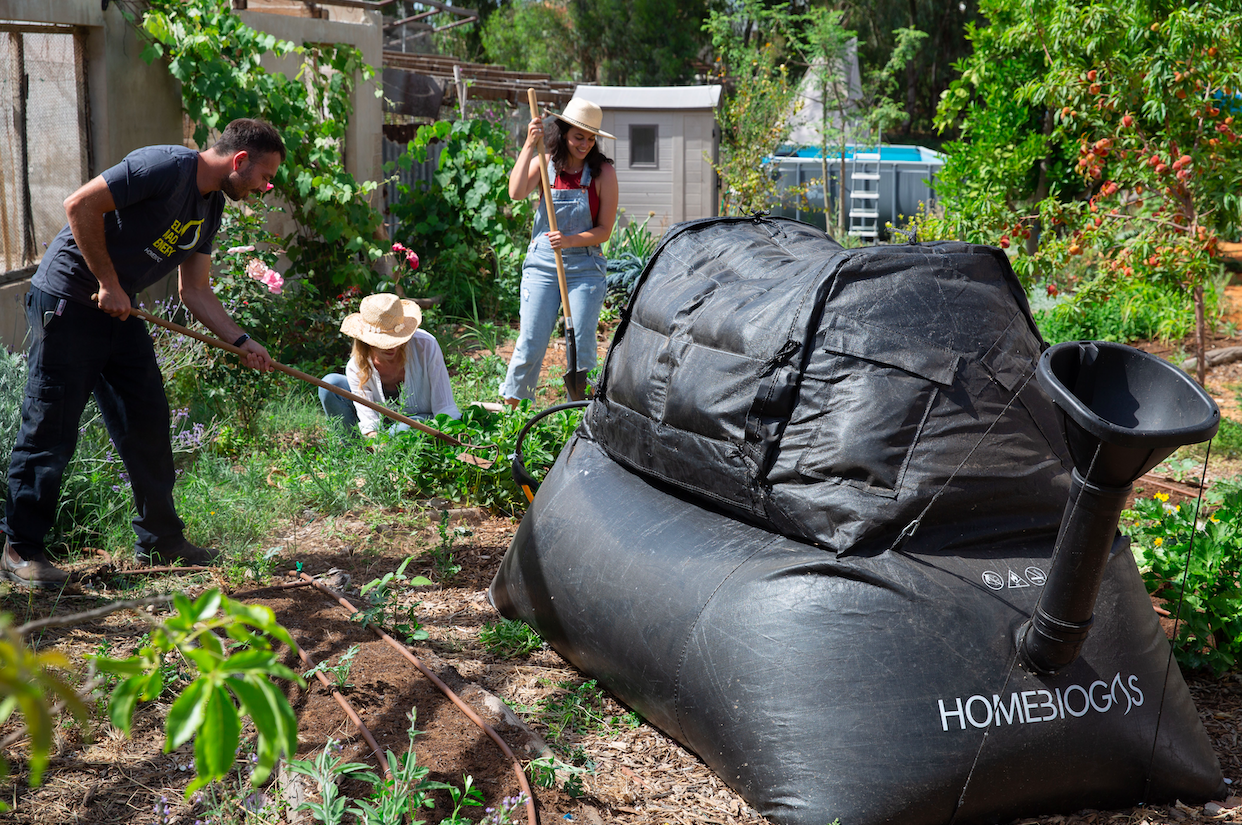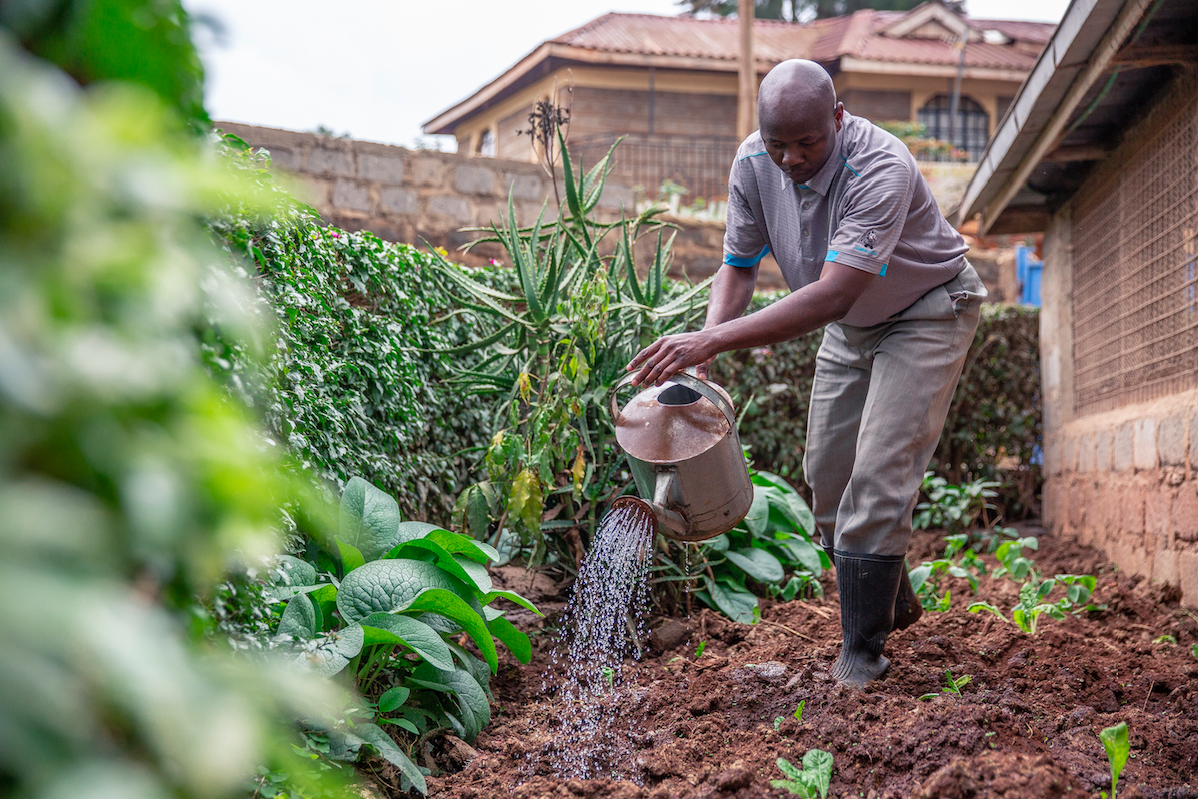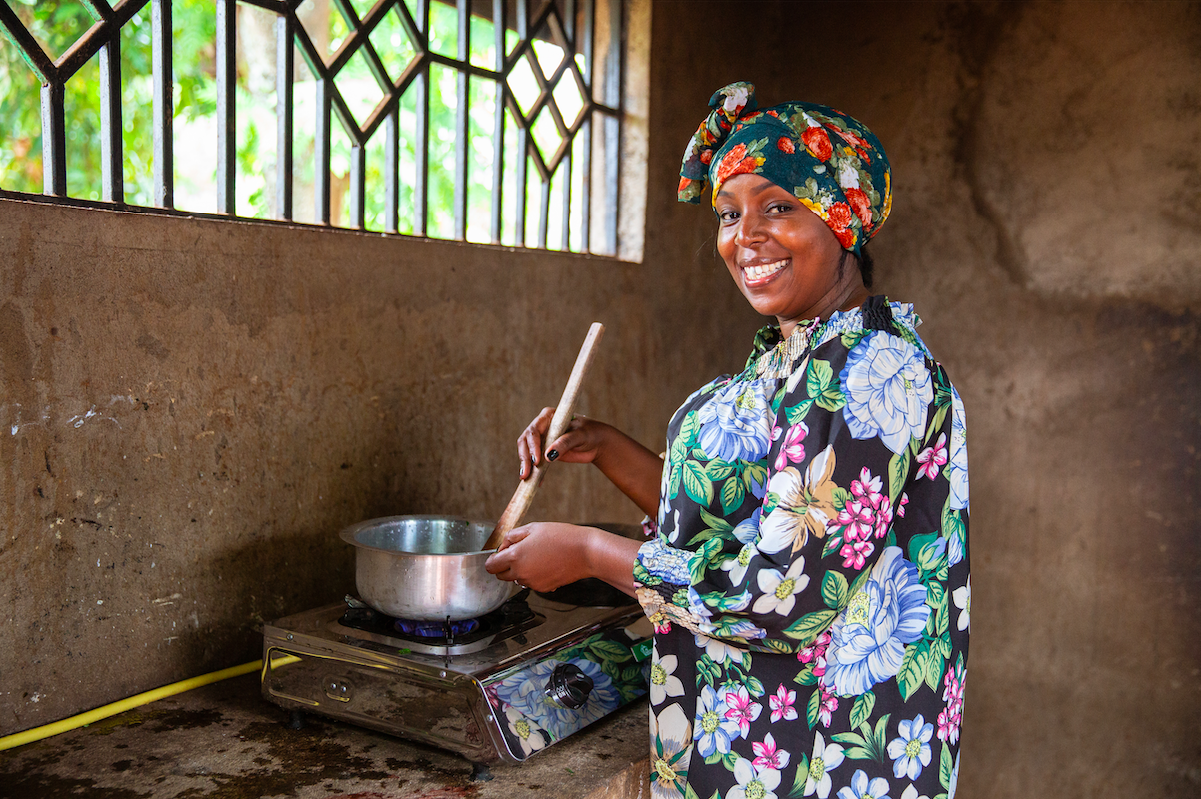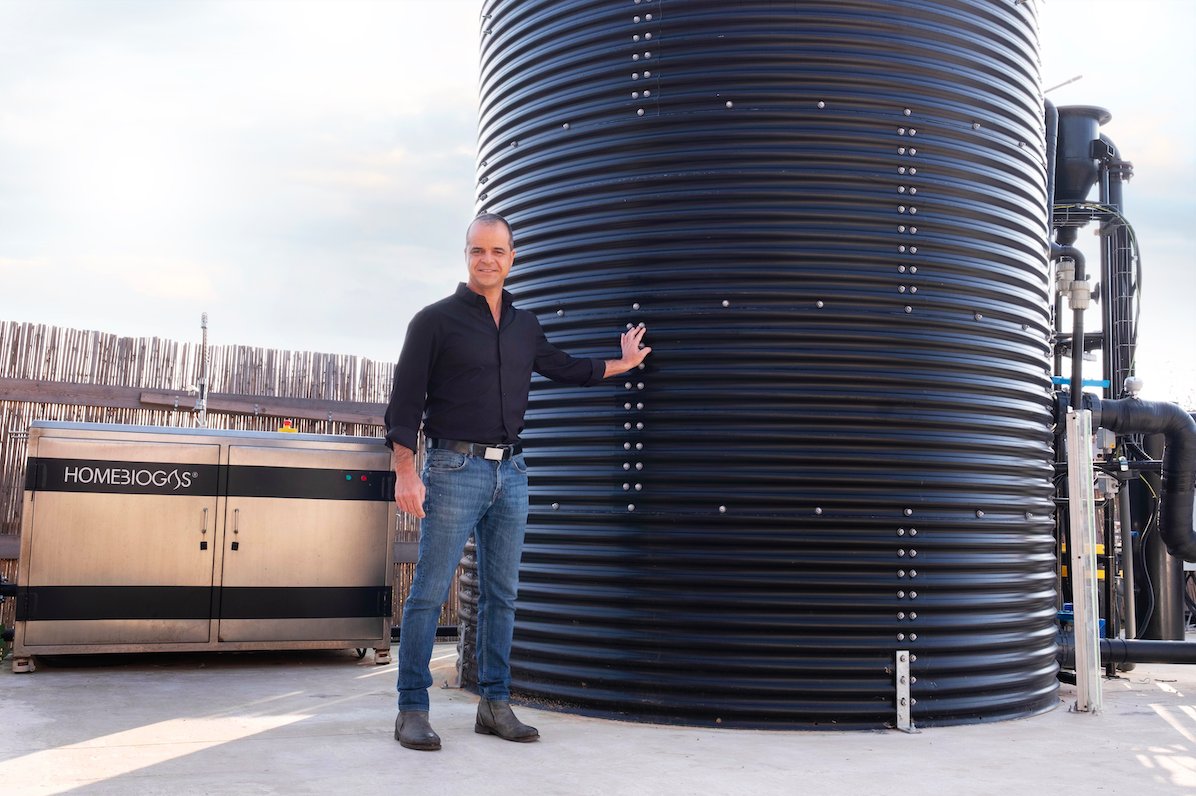HomeBiogas: The Circular Economy Meets Clean Cooking
HomeBiogas, an Israel-based biogas system developer and member of the Clean Cooking Alliance’s (CCA) Venture Catalyst portfolio, was recently listed on the Israeli stock exchange in an Initial Public Offering (IPO) valued at $94 million after money.
Oshik Efrati, CEO of HomeBiogas, and Boaz Schweiger, Executive Chairman of HomeBiogas and Operating Partner at Closed Loop Partners, spoke with Colm Fay, CCA’s Senior Director for Market Strengthening, about the origins of HomeBiogas and what the IPO means for the company and its future.
This interview is part of a series of conversations CCA is having with business leaders across the clean cooking sector. Ronan Ferguson, CCA’s Senior Manager for Market Strengthening, contributed to this interview.
Colm Fay (Fay): How did HomeBiogas get started?
Oshik Efrati (Efrati): When I was a biology student, I designed a water filtration product that was marketed toward travelers. I sold the idea to a company and, when I graduated, I went to work at the company’s research & development team to develop and commercialize similar products. After a few years, I wanted to go back to entrepreneurship to do something of my own that would reduce waste and have a positive impact on the world.
That’s when I started talking with Yair Teller, one of the co-founders of HomeBiogas, about a vision and plan for a more scalable approach to the biogas systems he was familiar with from his time traveling in India. Traditional biogas systems require heavy construction and digging, take a lot of time and expense, and are difficult to maintain. Our aspiration was a product that would come in a do-it-yourself kit and be very user-friendly. I knew I was strong in product development while Yair was strong in understanding the biogas market; we just needed someone with a background in operations and finance. So, once we found our third co-founder, Erez Lanzer, we founded HomeBiogas in 2012.
We thought it would take three to four months to develop a product, but it took three to four years. Biogas deals with waste–which is a sanitation problem–but also deals with gas, which has safety issues associated with it. There were many problems along the way, but we believed in the goal and were persistent.
The HomeBiogas system converts household or agricultural waste into biogas for cooking and fertilizer through a process of anaerobic digestion.
Fay: What makes the HomeBiogas system different to other biogas systems on the market?
Efrati: We have customers in 107 countries worldwide. The unique value of HomeBiogas is that it’s a do-it-yourself kit: anyone can install it, recycle the waste, and produce energy and fertilizer, all from their backyard. A few years ago, you would have had to go on YouTube to learn how to build a biogas system. We succeeded in bringing biogas to people around the world who otherwise wouldn’t have had this option.
There is a huge community of people from different continents, cultures, and languages who are excited about recycling waste and producing renewable energy and fertilizer. They learn a lot from each other, and we learn a lot from them. We are continuously improving and developing our product, which is becoming more affordable, efficient, user-friendly, and durable. We’re also continuously developing aftersales support and customer service, and we now have an international network of 20 distributors.
Fay: How would you describe the typical consumer for HomeBiogas systems?
Efrati: In emerging markets such as Sub-Saharan Africa, we mainly work with farmers. These farmers may have a few cows, generate income by selling milk, use the biogas for cooking, and use the fertilizer to grow food for the cows. We also have projects with organizations like the United Nations, the WWF, and the United States Agency for International Development, which target communities in need of sanitation and energy solutions. In developed markets, our customers primarily see HomeBiogas as a tool to recycle waste. In addition, we work with schools to install biogas systems and support vegetable gardens. Students conduct experiments on gas production, fertilizer, and learn about the entire food cycle.
Some of our grant-funded work focuses on projects that promote peace in the Middle East. One of the best projects we have is in the Palestinian Territories, with a Bedouin community that traditionally would dry sheep manure to use as a cooking fuel. Ninety percent of children in these areas have respiratory issues. We brought 50 university students from Israel to work with 50 students from the Bedouin community and, together, they installed biogas systems for 40 families.
Fay: Taking the company public earlier this year was a huge milestone for HomeBiogas and for the clean cooking industry. What made an IPO the right choice to meet the company’s capital needs?
Boaz Schweiger (Schweiger): The need for clean cooking is huge and, for us, the market potential is huge. This IPO presented an opportunity to raise a significant amount of capital at a reasonable valuation, which can help us grow faster and offer a better product. The IPO also allows us to diversify our investor base, which is good for the company. In addition, everything we do now is transparent; the company is subject to strict regulation and that’s a seal of excellence that provides assurance to potential partners.
Efrati: We want to show that an IPO is possible for a company committed to positive social impacts, and that more companies should do it. It’s our mission to do good and be profitable, and the IPO is a success story that we hope can inspire other entrepreneurs.
Fay: You’ve worked closely with Closed Loop Partners, one of your investors, for a long time. How did this partnership develop and how does HomeBiogas fit into Closed Loop Partners’ portfolio?
Efrati: Closed Loop Partners are HomeBiogas’s biggest shareholder and are almost like a co-founder. We met them by coincidence. Their CEO, Ron Gonen, was giving a lecture on the circular economy and one of my best friends was in the audience. He went up to Ron after the lecture and showed him a picture of a HomeBiogas biodigester and said, you must speak with Oshik. Ron has now been on the board of HomeBiogas for many years. Our goals are very much aligned: Closed Loop Partners are promoting the circular economy concept, and they see great potential for implementing HomeBiogas’s onsite waste-to-energy solutions in both developing and developed markets, particularly in the United States. They have a huge network and are always thinking about how to bring value to the company.
Fay: In this next phase of growth, what can we expect to see from HomeBiogas?
Schweiger: We will develop new products that will be more suitable for different customer segments, but that continue to treat organic waste onsite using biogas systems. One product we are developing is a biogas system for larger institutions, such as industrial kitchens, hotels, restaurants, or universities. This product is in a pilot stage and will be coming to market very soon.
Fay: How do you anticipate demand for biogas systems growing in the coming years?
Efrati: I think demand will grow, both in emerging markets and in developed markets, as businesses start to take care of their own waste and to understand the energy value waste can have and the ecological footprint that’s otherwise left behind.
Schweiger: It’s a very good time for biogas solutions: public awareness of climate change is growing and the world is focused on carbon and reducing emissions, as evidenced by the commitment of the Biden Administration. We think biogas will be an important source of carbon emissions reductions as well as additional monetizable impacts such as health, sanitation, women’s empowerment, and economic development. The work of CCA is very important in this respect to increase the awareness of clean cooking, emphasize the connection between clean cooking and carbon emissions and the impact on the environment and people’s lives, and to increase the level of interest among governments to grow these markets.




